#arabic inscription
Text



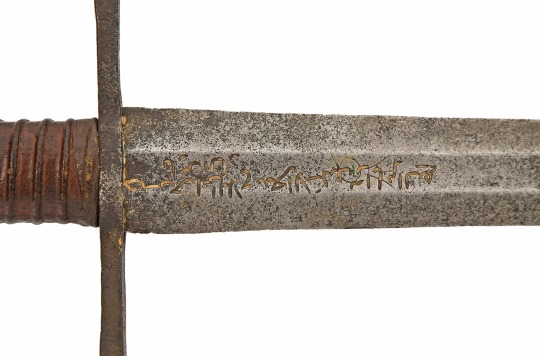

A rare Mediaeval Sword taken from the Mamluk Arsenal at Alexandria during the last Crusade in the second half of the 14th Century
This sword was given as a gift to the Mamluk rulers of Alexandria by the Christian ruler of Cyprus and Jerusalem, King Peter I as part of a gift sealing a treaty. The sword was then forcibly taken back into Christian hands during the last Crusade's victory over the city of Alexandria. Consequently the sword symbolises the history of the time when Christians and Muslims fought for dominance in the eastern Mediterranean.
King Peter I, the King of Cyprus and Jerusalem, launched the last Crusade in 1362 against the Muslim Mamluk Empire in the region. A fleet set out from Cyprus and proved victorious, taking the city of Alexandria with immense amounts of plunder returned to Cyprus, including this sword. Such was the treasure and weapons taken from the captured city that many of the overloaded ships had to jettison cargo.
David Williams, Head of Bonhams Antique Arms and Armour Department, says: "The fascination of this sword is that it has survived some six centuries having been gifted by a Christian King to a Muslim ruler and kept in the famed Alexandrian armoury and then taken by force by Crusaders and returned to Europe. It is a remarkable survivor of the Crusader period."
#antique#arms#medieval#mediaeval#middle ages#sword#swords#alexandria#crusades#crusade#crusaders#crusader#europe#european#knights#knight#cross#christian#christianity#weapon#weapons#armoury#history#christians#armour#arabic inscription#king peter i
127 notes
·
View notes
Photo

نصب جنائزي لسبئي يسمى محمد بن ذات وسعت. القرن الأول-الثالث، اليمن. النقش هنا يحتوي على أقدم ذكر للاسم محمد (𐩣𐩢𐩣𐩵).
Funerary monument of a Sabaean named Muhammad son of ḏhat Wasʿat. 1st-3rdC, Yemen. The inscription here contains the oldest mention of the name Muhammad.
53 notes
·
View notes
Text
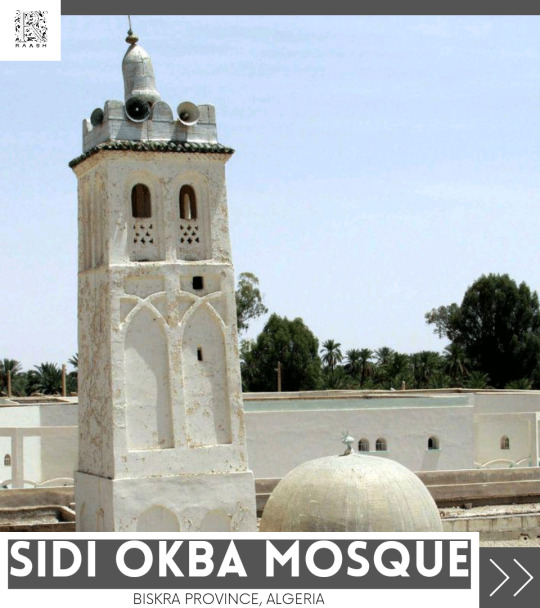

Sidi Okba Mosque is a historical mosque and the oldest mosque in Algeria. The mosque is located in the Sidi Okba commune in the Biskra Province, Algeria. It was originally built in 686 AD as a mausoleum for the great Muslim conqueror, Uqba ibn Nafi, a military commander and one of the most prominent leaders of the Islamic conquest of Morocco during the era of the Rashidun and Umayyad Caliphates.
#mosque#biskra#algeria#site#arab#general#islamic#conquest#maghreb#ancient#tradition#prophet#medina#arabic#inscription#character#modern#complex#shape#school#library#prayer#student#place#memory#raash#instagram#facebook#twitter#tumblr
2 notes
·
View notes
Text
my need to have literate chinese rly only barely winning over my need to have literate persian. rly only barely. so barely, in fact
#even tho for speaking reasons arabic might genuinely win i am a Research Person. augh#(reading abt persian resist-dye poetry inscriptions and going D: hearing they're mostly not translated)#(chinese is winning bc i don't shut up abt its art/history ever & i have to pronounce these words With Knowledge. or else)#(this makes me more ok w speaking it also)
0 notes
Text


The Viking Age ring with the Arabic inscription
“for Allah” The Birka Ring
Featuring a pink-violet colored stone with an inscription that reads “for Allah” or “to Allah,” the silver ring was found during the 1872-1895 excavations of grave fields at the Viking age trading center of Birka, some 15.5 miles west of Stockholm.
3K notes
·
View notes
Note
so I don’t have the knowledge of details that you have (complimentary) but is there anything in the computer code Colin looking into being written in German and Jonah Magnus’ buddy living in the Black Forest and finding that crypt that one time? Or is that Too far a reach?
vibrating at the speed of sound. so there are a couple of floating details around from the podcasts, the arg, and some promotional materials that may point back to germany having particular relevance. some of this is absolutely me going full pepe silvia, but there are enough threads here that I feel like it has to amount to Something.
so. germany.
archives 'verse:
-> point 1: johann von württemberg. while staying with his nephew in the schwartzwald in 1816, albrecht von closen finds an old mausoleum with the inscription "johann von württemberg" over the door, and it is guarded by a man with no eyes who nonetheless seems to be able to see. in a deep chamber well beneath the ground is johann's coffin, and the room is completely lined with books so old that they'd all rotted through and fused together, the marble shelves they're placed on having little carvings of open eyes all along them. the only two objects in a good state are an illuminated manuscript in arabic that had been kept apart from the rest of the books, and a gold coin with an engraving of a young man with flowing hair, the initials "JW," the year 1279, and the words "für die stille" (google translate tells me that’s “for the silence”). albrecht asks around for any information about johann because the name is unfamiliar despite his quite good knowledge about local history and nobles, and someone says they remember him being called "ulrich's bastard," likely referring to ulrich the i or ii, two counts of württemberg from the 1200s. with that information, in the present day jon is able to find some historical records that point to ulrich i having a son out of wedlock in 1255 who was rumored to keep the company of witches.
-> point 2: the von closens. it seems that a servant nicked the coin albrecht found before he could go home with it, and that was probably for the best for albrecht, because that servant Died Badly from what was ruled to be an animal attack. albrecht did take the book with him, however, and presumably went on to show it to jonah magnus. he then must have gone back for the rest of the rotten books at some point, though, because when doctor jonathan fanshawe visits his estate in 1831, albrecht has a full library of recently re-bound books that he tells fanshawe he got from the tomb, and owning them has done terrible beholding-esque things to him. fanshawe, in his capacity as a doctor, says they should return the books for albrecht's health, and they do so, but just as the last book is returned, albrecht dies, and fanshawe realizes that all the books were blank and finds out that jonah arranged to have them all swapped out by the book binder. when fanshawe performs an autopsy on albrecht's body, all of his insides are covered in eyes.
in his statement from 1816, albrecht says he and his wife carla have been unable to conceive, though in 1831 fanshawe mentions that all of albrecht's sons were away at school when he came to visit. not something that's impossible, they could have managed to have children shortly after 1816, but it does make me raise an eyebrow. magically blessed fertility? dimension shenanigans? fanshawe does mention a tree being burned on the von closen estate that feels remarkably similar to the tree on hilltop road.
anyway, wilhelm, albrecht's nephew, has some children, and the family stays in germany for about another century, but one branch eventually moves to england, and their descendants include mary and gerard keay. according to gerry, mary was big into mythologizing about the von closens and really tried to get him to continue her idea of a legacy for the family, but he thought most of what she said was made up.
protocol 'verse:
-> point 3: colin's comment about source code being written in german. nothing much to explain here, just that it's Weird that source code for some Weird bespoke program for the british civil service is written in german, right? Bit Odd.
-> point 4: the usenet forum. okay so I'm an avatar of the idiot and only read up about the arg after it was already over and don't know anything about code and whatnot, but as best as I can understand: on the OIAR's official website, if you try to submit a form, you get an error message, and if you look into the source code for the error then you find Some piece of code with an IP address shaped hole in it, and there's an IP address hidden in an OIAR advertising video, so you put that IP address into the code, do something else (???), and then find yourself at an old defunct usenet forum from the 90s/00s for people who left east germany.
(it is from here that I got too verbose for my own good, so the rest is under a cut)
notable things about the forum: most of it is pretty normal, and, naturally, it was pretty much all in german, massive shoutout to everyone who helped to translate all 21k words of it. there are threads about finding work in various countries, weird cultural idiosyncrasies, resources, reminiscing about berlin, yknow, normal stuff. the mod “SandmannS” (translates to exactly what it looks like) ran the forum with a bit of an iron fist, which I guess makes sense, it’s the kind of forum that attracted people who wanted to say some heinous stuff and he was really serious about not letting anyone solicit personal information, but he was also kind of overzealous about keeping threads on topic and locking any discussions that he thought were “pointless.” he was eventually strongarmed into opening a thread for cat pictures, and that’s as good an opening as any to talk about some of the Weird things about the forum.
one of the cat photos was posted in february 1994 and shows a cat standing in front of the thames, with what looks like the completed o2 arena in full view (great choice of a red flag landmark to include @ whoever chose it. nice big landmark that was called “the millennium dome” when it first opened, a handy reminder that it was made to celebrate the turn of the millennium and construction wouldn't even have started in 1994). several comments across the threads are dated as earlier than the comments they’re replying to, one person references the content of the phantom menace a few months before its release, and several comments were somehow made after the mod locked the forum in dec 2001/jan 2002.
and okay. the forum locking. I’m going to condense this to all hell because this is already [redacted] words long but basically, “einsamernarr” (translation: lonely fool) was an active user of the forum with a big conspiratorial streak, real paranoid about “the government” spying on him, always getting warnings and just dodging getting banned just before going too far, yknow, a Type of Guy. in december 2001, he mentions in a book rec thread that he was trolling through some databases and found a bunch of old records and he can’t tell if they’re fictional or not, but he’d like to share them if he can. about five days later, he starts posting in several threads that he did something really dumb, people are after him, the meetup they were planning is not safe and this forum is being watched, people should look for him if he doesn’t come back within a week, and he’ll try to leave some info behind for them just in case. a few days later, a couple of people post worried messages asking if anyone’s heard from einsamernarr and that they’ve been getting weird cryptic emails about an “institute” from him, and sandmanns says that he did everything he could, but he can’t keep doing this, and he closes the forum.
marina “avatar of the idiot” annabelle--cane showing my face here again, I don’t know how this next part happened, but it’s possible to retrieve the email einsamernarr sent, open it with a password found in colin’s code repository (that’s a whole ‘nother thing), and find inside: 1. some pictures of bonzobucks, 2. a weird pdf of an old german book on alchemy with a lot of symbols and codes in it, and 3. a spreadsheet of the names, ages, and test results of the hundreds of children the protocol 'verse magnus institute was performing psych studies on. which finally brings us to our next, much shorter section.
-> point 5: “gerard kaey” (sic). gerry’s name is on that spreadsheet, which I think is relevant to this conversation given mary’s obsession with the von closen legacy. archives ‘verse mary keay resented the magnus institute for what she felt it stood for comparison to what she felt she stood for; she saw jonah magnus as a thief who stole away her family’s honor, so what might be different about the protocol ‘verse situation? why would mary keay in this universe send her only heir to go get scrutinized by a bunch of self-important academics?
-> point 6: the berlin dead drop. more arg stuff, we’re getting into things that I’m sure probably have more to be said about them than I’m capable of saying, but from some clues in a picture of cookbooks that einsamermarr posted in the cat pictures thread of the usenet forum to annoy the mod, and a voicemail on the OIAR’s telephone line, people found out the date and location of the first irl arg event, and it was for somewhere in berlin. a newspaper covered in alchemical symbols was found in a bookshop, and from that people somehow derived coordinates, and those coordinates lead to the last irl event where a battered old video tape with a video of a creepy ritual was found (note: the tape was too badly damaged, so another copy of the video came from an arg affiliated tumblr account).
-> point 7: klaus.xls. from a floppy disk found in the second irl arg event, klaus.xls is a spreadsheet originally written in german with about 100 dates and times of potentially paranormal sightings. a lot of it is corrupted and unreadable, but there are columns for category, rank, “TSHU,” and notes. translated into english, notes sections that aren’t corrupted say things like “mr. b,” “war people,” “avoid, “unhappy child,” “ink,” “lady m,” “cats lol,” and “I hate witches.”
-> point 8: albertus magnus and the philosopher’s stone. right, this is where I go a bit off the rails, and credit to this post by @misfitmagpie for discovering some of this. first, nearly every official visual we’ve had for tmagp has been covered in alchemy symbols. they’re all over the logo, they’re all over the in-universe OIAR and magnus institute websites, they highlighted hints in the arg, they’re everywhere, and the end goal of alchemy was the pursuit of the mythical philosopher’s stone, a substance that could turn base metals into gold and produce an elixir for eternal life. the tmagp logo/the coat of arms for the OIAR is centered around an upside down alchemical symbol for the philosopher’s stone, a circle in a square in a triangle in a larger circle.
albertus magnus (aka saint albert the great) was a bavarian philosopher and scientist who did some writing on alchemy and has been widely rumored to secretly have been a master alchemist, mainly as a result of a lot of people attaching his name to writings about alchemy that he never touched. some have credited him as discovering the actual philosopher’s stone, and while he never made that claim in any way that survives, he did record that he’d witnessed seeing base metals be turned into gold. something of which to take note is that he didn’t go by the name “magnus” during his life, that was appended to him posthumously, it’s just another way of calling him “the great” with a fancy latin word, but it does kind of remind me of that edmond “reimer” halley -> maxwell rayner thing from mag 140. if you discovered the elixir of life and became immortal, you would probably need to nab a new identity at some point, and if people have already been nicknaming you “albert the great,” well…
anyway, the thing that’s really cemented his potential relevance in my mind is his birth and death dates: c. 1200-1280, lining up perfectly with the time period of johann von württemberg (thought we’d moved on from him, didn’t you?). I know magnus timelines are notoriously a bit unruly, especially the further back into the past we get, but it’s scratching at my brain. besides that, I think it would be a really cool move if the magnus this podcast is named for was a completely different person than the magnus the last podcast was named for.
if albertus magnus isn’t directly relevant then I’ve got another theory about the title that I’ll be posting in a hot minute, but it’s not germany related and this ask is already long enough.
just, to sum up, a lot of protocol content so far has been germany-adjacent, and even if nothing more comes of it I think there are a lot of interesting threads here to speculate about.
357 notes
·
View notes
Text

This ring was discovered on a woman buried around 1,200 years ago in Birka, an ancient Viking city located 30 km (19 miles) west of contemporary Stockholm, Sweden. What sets this ring apart is the inscription "for Allah" in Kufic Arabic, commonly used between the 8th and 10th centuries. It provides evidence of direct contact between Vikings and the Abbasid Caliphate, the third caliphate succeeding the Islamic prophet Muhammad.
155 notes
·
View notes
Note
Hi there! I'm heading to the U.A.E. from America in a few days and I'm quite anxious. I was wondering if there was any clothing at Rakurai Inc which would help me fit in better with the locals and boost my confidence and assertiveness?
Glad you got in touch! We have exactly what you have been looking for!!
You found a package when you got home from work. It was a completely blank box except for a small sticker reading Rakurai Inc.
You open it up to find a slick looking headset in it, with some arabic inscriptions on it. You look around the box, but can't find anything on how it works. It doesn't seem to have a jack in it nor any way for you to connect it to your phone with bluetooth so you decide to put it on.
Immediately it starts to play a tape.
"Learning module activated. Scanning for necessary courses"
Suddenly a weird humming begins to drone in your ears. Along with it certain arabic sounding phrases started playing in your head. The first few times you couldn't understand any of it, but suddenly you understood most of it.
"Big, strong, fertile"
Images of big strong arabic men appear in your head. You stumble a bit as your sense of balance was thrown off. You look down and see the legs of your pants have gone up your legs. You watch it with facination as the headset continues.
"Large, Leader, Rich"
Your head begins to spin again and you can barely get yourself on the couch.
You look down to see your pants tight on your legs, almost painted on. You see your bulge growing in your pants, and with it waves of pleasure start spreading through your body.
The tape speeds up, a larger variety of phrases being pushed into your brain, while your mind fogs over due to the pleasure.
"Plump, handsome, regal"
"In charge, charismatic, addictive"
"Cultured, gorgeous, playfull"
Your body keeps growing. Bisceps exploding through the fabric of your shirt, while your pecs are involuntarily bouncing. Your waist snaps, slimming down while your abs flex and push to the surface. Your back widens, shoulders rounding out. Your growing cock starts leaking, before bursting free from the confines of your pants. Your moans echo through your appartment, a previously unknown amount of pleasure radiating through your body.
Your hands explore your growing body.
"Wanted, desired, needed"
"Hungry, hungry, hungry"
You are hungry. A primal hunger that you couldn't satiate here. You need ... you want to be...
"Topped, fucked, bred"
Yes... your mind racing, you want cock, you need it, but you are in charge.
Your ass growing, you feel your hole pucker. It tenses, and releases. You know. You don't get fucked. You fuck. You aren't just a bottom. You drain your partners. They aren't penetrating you, you allow them to enter you, for them to experience the best moment of their lives.
"In charge, draining, dominant"
A grin appears on your face, a face that has been perfected due to your new toy. Sharp jaw, perfectly trimmed beard. Plump lips to get their tool ready.
You make them desperate for more. You got loads of different "tops" on speed dial. They say they're a top, but they are actually too afraid to take it, but you're much better.
You take of your headphones and look around your room. It's a penthouse in one of the most expensive buildings in the U.A.E. which had been gifted to you by one of your clients. You look at your phone and see a few notifications telling you of the massive amount of money you have made from your previous night out.
You smile, life is good.

I hope you enjoyed our trial edition language learning headphones!!! As seen in the picture they are state of the art and can be modified to fit any needs. Be aware some side effects may occur, cultural switch, sluttyness, or iq loss are some of the most common. Please continue your patronage with Rakurai Inc.
#transformation#male muscle growth#rakurai#gay tf#male transformation#race change#arabic#power bottom#dom bottom
236 notes
·
View notes
Text
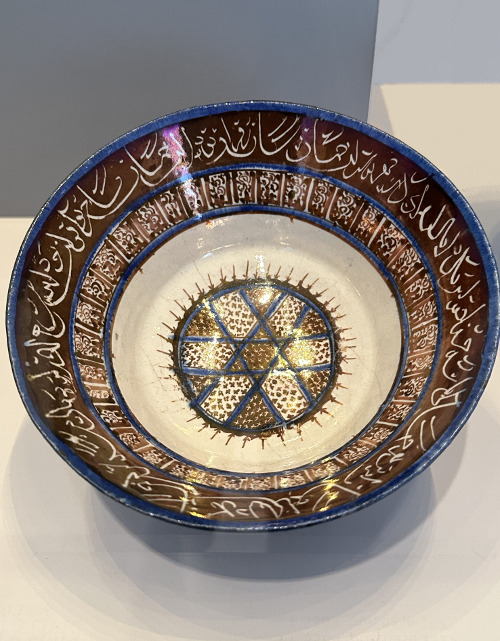
Medieval Persian bowl with Arabic and Persian inscriptions. The Pergamon Museum, Berlin, GERMANY.
Photo by Babylon Chronicle
79 notes
·
View notes
Text

two young friends, Alex and Ryan, shared everything from secrets to dreams. They laughed together, played together, and explored the world around them with bright eyes and adventurous spirits.
One fateful evening, while wandering through an ancient market, they stumbled upon a peculiar antique shop tucked away in a corner. Intrigued by the mysterious aura surrounding it, they decided to step inside. The shop was filled with an eclectic array of artifacts from different cultures and eras.
As they browsed through the shelves, they came across a dusty old lamp adorned with intricate Arabic inscriptions. Without a second thought, Alex jokingly rubbed the lamp, expecting nothing but a cloud of dust. To their astonishment, the lamp began to glow, and a swirling mist enveloped them.
When the mist cleared, they found themselves transformed into two gay Arab men, utterly in love with each other. At first, they were bewildered and frightened by their sudden metamorphosis, but as they looked into each other’s eyes, they felt an inexplicable connection, stronger than anything they had ever experienced before.
Despite the initial shock, they embraced their new identities with courage and curiosity. They roamed the bustling streets of the Arab city, hand in hand, marveling at the vibrant colors, exotic scents, and melodious sounds that surrounded them.
At first, they stared at each other in disbelief, marveling at their new appearance. Their once-familiar faces now bore the mark of their transformation, yet their eyes still held the same spark of friendship and trust.
As they tentatively reached out to touch each other's hands, they felt a surge of energy pass between them, igniting a flame of love that burned brighter than ever before. It was as if the universe had aligned to bring them together in this new form, bound by a love that transcended all boundaries.
With each step they took through the bustling streets of the Arab city, they discovered more about themselves and each other. They learned the language, immersed themselves in the vibrant culture, and embraced the customs and traditions with open hearts.
Their journey was not without its challenges. They faced prejudice and discrimination from some who could not understand or accept their love. But they also found allies and friends who welcomed them with open arms, celebrating their courage to live authentically in a world that often demanded conformity.
Through it all, Alex and Ryan stood side by side, their love growing stronger with each passing day. They reveled in the beauty of their newfound identity, cherishing every moment they spent together as gay Arab men deeply in love.
And as they gazed into each other's eyes under the starlit sky, they knew that their transformation was not just a twist of fate, but a gift that had brought them closer together, binding their souls in a love that would endure for eternity.
#bodyswap#mental change#fantasy#gay#male transformation#male body swap#straight to gay#race change#Arab
94 notes
·
View notes
Text
I keep seeing a post going around saying that people should stop using the “colonized” names for cities in Israel/Palestine and should instead use the Arabic names.
I need you guys to be so for real right now, Hebrew is quite literally the indigenous language of the area. Like believe what you want about Israel, but Hebrew objectively and factually originated in that land. The earliest record of written Hebrew is the Khirbet Qeiyafa inscription, found near Beit Shemesh which dates back to the 11th-10th century BCE.
The first record of the name Jerusalem is in the Egyptian Execration Texts which date back to the 20th century BCE.
Arabic was introduced to the land in the 7th century CE. The first recorded use of “Al-Quds” was in the 9th century CE.
I could do this for every single ancient city in the land. Bethlehem, Hebron, Jericho, Jaffa, Beer Sheva, Acre, and Ashkelon all existed prior to the Arab conquests in the 7th century CE and the introduction of Arabic to the land.
The fact that we use the Hebrew names of these cities isn’t some conspiracy to make them sound “more Jewish”, the modern Hebrew names are direct descendants of the ancient Canaanite words for these places. Hebrew is the only surviving Canaanite language.
Believe what you want about Israel, but claiming that the Hebrew names for these cities are “colonial” names is a disgusting erasure of Jewish history in the land.
#israel#jews#jewish#hebrew#arabic#israel palestine conflict#palestine#I have a feeling I’m gonna get hate for this but honestly I had to say something#y’all are willingly spreading pan-Arabist propaganda
100 notes
·
View notes
Text
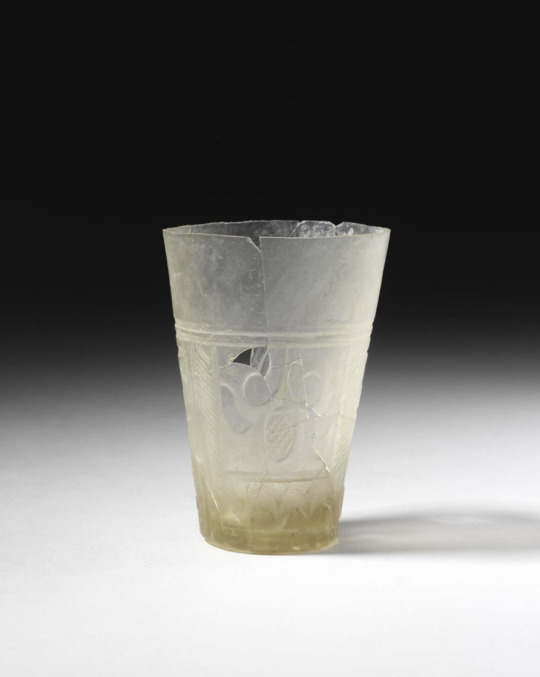
glass beaker with designs of birds, with the Kufic inscription 'perpetual blessing' in Arabic
Nishapur, Iran, 800-1000 AD @vamuseum via @edmunddewaal
76 notes
·
View notes
Text
Shoemaker on literacy, memory, oral tradition, and the Quran:
Studies of literacy in pre-Islamic Arabia have been severely overlooked in recent Quran scholarship; in fact, literacy in the 7th century Hijaz was "almost completely unknown" and "writing was hardly practiced at all in the time of Muhammad." "[T]here seems to be a widespread agreement among experts on the early history of the Arabic language 'that, before and immediately after the rise of Islam, Arab culture was in all important respects fundamentally oral.'" Ancient graffiti in the region seems to have been a bit like early runic writing in Scandinavia--not central to the culture, mostly decorative and incidental, and certainly not used for long, important texts. "There is, in effect, a lot of 'Kilroy was here' scattered across the Arabian desert." Indeed, most of these graffiti are personal names or private in nature--we're not talking monumental inscriptions here, we're talking bored herders scratching stuff onto rocks to pass the time.
Southern Arabia and the larger oases to the north had more in the way of literate elites (and thus things like monumental inscriptions), but these places were far from the central inland Hijaz. If someone in this region did want to become literate, they would probably have learned to read and write in Greek or Aramaic, which were useful and important linguae francae.
As in very early Christianity, writing occupied a controversial position vis a vis orality--oral tradition was primary for the production and transmission of culturally important things like religious texts, poetry, literary prose, genealogy, and history. The shift to a literate culture came only with the expansion of Muhammad's polity into a wealthy, multicultural empire rather than a tribal state. Indeed, much of the early Caliphate's administration used Greek and other languages--Arabic entered administration only slowly, since a lot of early bureaucrats were drawn from the Roman and Sasanian bureaucracy.
And like early Christianity, another reason not to feel any urgency to write down Muhammad's teachings was that early Muslims expected the end of the world to come very soon, maybe initially even before Muhammad's own death.
The dialect of the Quran is distinctive and unusual; it is very difficult to locate where this dialect might have originated. Ahmad Al-Jallad tentatively identifies an Old Hijazi dialect, but the evidence for this dialect (besides the Quran itself) is limited and mostly much more recent, and he assumes the Quran was produced in the Hijaz.
The Arabic of the Quran can probably be identified with the prestige dialect of Levantine Arabic in the Ummayad period, but the origin of that dialect, and what Arabic dialects were brought together there in that time, is hard to ascertain with certainty.
Shoemaker thinks the Quran started as short collections drawn from individual memories following the conquest and encounters with widespread literacy; these collections would have been considered open, and subject to influence from oral tradition. They were combined into increasingly larger collections, with additional traditions and revisions, emergin as something like divergent versions of the Quran (though still not fully static and closed). Finally, the traditions of these regional versions, with other written and oral traditions, were fashioned into their canonical form under Abd al-Malik, and this version was progressively enforced across the empire.
Shoemaker brings in memory science and the anthropology of oral cultures: memory is highly frangible and fallible. Even though it functions well for day to day tasks, it's important not to overlook how common misremembering and re-remembering alters information in both personal and collective memory when talking about a text that even Islamic tradition agrees was not written down within Muhammad's lifetime.
Most forgetting occurs shortly after an event in question; a small core of memories we develop about an event will persist for a significant time after. These findings have been corroborated both in the lab and in the circumstances of everyday life.
Memory is not primarily reproductive; literal recall is, in evolutionary terms, pretty unimportant, and brains omit needless detail. Remembering thus involves a lot of reconstruction more than it does reproduction; memories are storied piecewise in different parts of the brain, and are assembled on recall, with the gaps being filled in using similar memory fragments drawn from comparable experiences.
Note Bartlett's experiments using a short Native American folktale; when asked to recall this story, even after only fifteen minutes participants introduced major and minor changes. Subsequent recall didn't improve accuracy, though the basic structure of the memory developed pretty quickly in each individual. But this structure was not especially accurate, and significant details vanished or were replaced with new information. Most often this information was drawn from the subject's culture (in this case, Edwardian England), forming a memory that made more sense to them and had more relevance in their context. The overall style was quickly lost, and replaced by new formations, and there was a persistent tendency to abbreviate. After a few months, narrative recall consisted mostly of false memory reports, a finding verified by subsequent replications of his experiments.
Experiential and textual memory in particular degrades very rapidly; this degredation is much faster when information is transmitted from one person to another. Epithets change into their opposites, incidents and events are transposed, names and numbers rarely survive intact more than a few reproductions, opinions and conclusions are reversed, etc. Figures like Jesus or Muhammad will hardly be remembered accurately even by people who knew them.
The style of the Quran (e.g., prose, and often terse, elliptic, and occasionally downright nonsensical prose at that) does not lend itself to memorization; Shoemaker argues it is only possible for people to memorize the Quran now because it has become a written document they can consult in the process.
Eyewitness testimony is of course also notoriously unreliable, despite what apologists (in particular Christian apologists) have argued. Cf. Franz von Liszt's experiment in 1902, where a staged argument in a lecture escalates to one student pulling a gun on another--after revealing this event was scripted and staged, and asking different students to recall the details of the event at different intervals afterward, literally none of them got it right--the best reports, taken immediately, got things about one quarter correct. Even repeatedly imagining a scenario vividly enough can eventually lead to a false memory of it occurring (a phenomenon which may explain some alien abduction reports). People mistake post-even hearsay or visualization for firsthand knowledge, especially in the case of dramatic events.
What memory excels at is remembering broad strokes--we are adapted to retain the information which is most likely to be needed, i.e., the gist (or, more likely, the broad themes) of events and information, and not its exact form.
There's a long digression here about John Dean's testimony on the Watergate conspiracy--this may be the first book in early Islamic studies to have Richard Nixon in the index.
Even competitive memory champions train for short-term recall of large amounts of information; they, and other people with preternaturally good memories, are of course exceedingly rare. It's very unlikely that someone could remember, several decades after the fact, precisely (or even mostly) what was told to them by their friend whose brother's wife's cousin was really there. So even within the traditional account of the Quran's composition, it makes no sense to claim it is in fact the verbatim word of Muhammad.
As in the case of Solomon Shereshevski, when you do have preternaturally good recall even for (say) lists of nonsense syllables, the result is actually kind of debilitating--you have so many useless details to sort through, it makes it quite hard to function at an abstract level. And hyperthymesiacs, though they exhibit a high level of recall about their past, still often remember things incorrectly, at about the same rate as people with normal memories--they are no less susceptible to false or distorted memories.
Nevertheless most modern scholars treat the Quran as a verbatim transcript of Muhammad's words. This is exceedingly unlikely! Especially given that "group" or "collaborative" memory--memories as reconstructed by individuals working together--appears to be even less accurate than individual memory. You get better results having people try to recall events by themselves.
Since during the age of conquests the majority of converts were not closely preoccurpied with the interpretation of the Quran, it would have had to have been rediscovered and hermeneutically reinvented later; the memory of Muhammad's words were being shaped by the nature of the community he founded, as its members collective and individual needs continued to evolve along with the context of transmission.
Many people, both scholars and the general public, seem to believe that people in oral cultures have remarkable capacities for memory not possessed by those of written cultures. Study of oral cultures has shown this is demonstrably false; literacy in fact strengthens verbal and visual memory, while illiteracy impairs these abilities. People in literate cultures have better memories!
Oral transmission is not rote replication; it is a process of recomposition as the tradition is recreated very time it is transmitted. Oral cultures can effectively preserve the gist of events over time, but each time the details are reconstituted, and the tradition can radically diverge from its first repetition, with the stories of the past being reshaped to make them relevant to the present and present concerns.
The collective memory of Muhammad and the origins of Islam as preserved in the Sunni tradition would have forgotten many details as a matter of course, many others because they were no longer relevant to the later Sunni community, and they would have been reshaped in ways that made them particularly suited to the life and community of their contemporary circumstances, exemplifying and validating their religious beliefs--ones very different from those of Muhammad's earliest followers.
The early Muslim conquests put a comparatively small number of soldiers, scattered across a huge territory, in a wildly different cultural and social context, especially in close contact with different Christian and Jewish communities, esp. in the Levant, which rapidly became the cultural center of the new empire. Jews and Christians may have joined the new religious community in large numbers in this time also; their faith and identity would have continued to evolve in this period, as we would expect from comparative episodes in the history of other religions. By the time that Muhammad's teachings were formally inscribed, the memories of his few hundred initial companions would have been transmitted and dispersed to a large number of people in a totally different set of circumstances, with consequences for how those memories exactly were recalled.
Jack Goody, researcher on oral traditions: "It is rather in literate societies that verbatim memory flourishes. Partly because the
existence of a fixed original makes it much easier; partly because of the elaboration of spatially oriented memory techniques; partly because of the school situation which has to encourage "decontextualized" memory tasks since it has removed learning from doing and has redefined the corpus of knowledge. Verbatim memorizing is the equivalent of exact copying, which is intrinsic to the transmission of scribal culture, indeed manuscript cultures generally."
Techniques like the ars memoriae belong to literate cultures and were invented by literate people; they are unknown in oral cultures. Oral and literate cultures in fact have a radically different idea of what it means for a text to be "the same"--in the former, word-for-word reproduction is not necessary. A poem can be "the same poem" even if every time it is performed it is largely unique.
Case of the Bagre, the sacred text of the LoDagaa people of Ghana, an extended religious poem used in a liturgical context. Variations in its recitation aren't just variations in wording; changes in recitation can be radical, and the last version is always the starting point. Nevertheless (as in other oral cultures) it is considered "the same," functionally identical with each recitation. These differences appeared even among different performances by the same reciter, or multiple times in the same ceremony. Even the most formulaic parts have great variability. Similar variability in oral texts in other oral cultures has been documented by other anthropologists, including for historical events.
Shoemaker notes that the tradition that the Vedas were transmitted without variation from the time of their composition remains an article of faith in some quarters of South Asian studies; this flies in the face of all available evidence. In fact we have no idea what the state of the Vedic texts was prior to the earliest manuscripts; they may have been written all along.
Collective memory is shaped by contemporary cultural imperatives--examples of Abe Lincoln, a white supremacist considered nothing special by his peers; Christopher Columbus, once revered; the last stand at Masada, considered a minor event of little importance to broader Jewish history until the founding of Israel.
There doesn't have to be any conspiracy or coordinated effort for false narratives about the past to take root.
The hard horizon of communicative memory is around eighty years; so historical consciousness basically only has two modes: the mythic past of collective memory, and the recent past less than eighty or so years ago.
Lack of a clear "generic" monotheism in the Hijaz around the time of Muhammad's birth means the expectations and memory of Muhammad would have been profoundly shaped by Christian and Jewish beliefs.
Early Islam, like early Christianity, wasn't old enough to have a clear distinction between historical/origins memory and recent/communicative memory.
"For most of the seventh century, then, Muhammad’s followers had a memory that was still immersed in the social and cultural milieux of the late ancient Near East, from which they had yet to clearly differentiate themselves. They eventually would do this in large part by developing a distinctive collective memory for their group, different from those inherited from Judaism and Christianity, a process that was no doubt delayed by their fervent belief that the world would soon come to an end, making such an endeavor rather pointless for a time. Only as the end continued to remain in abeyance, and the community’s living memory grew ever distant from the time of origins did they develop a collective memory of their own. Yet, as Islamic collective memory began to evolve, one imagines that it initially took different shapes within the various pockets of Believers that were scattered across their empire. The basic elements of this nascent collective memory were, as Halbwachs says of the early Christians, “still dispersed among a multitude of spatially separated small communities. These communities were neither astonished, anxious, nor scandalized that the beliefs of one community differed from those of another and that the community of today was not exactly the same as that of yesterday.” Thus, we should expect to find a significant degree of diversity in religious faith and memory among the different early communities of the Believers, scattered and outnumbered as they were among the Jews and Christians of their burgeoning empire. Only with ʿAbd al-Malik’s program of Arabization and Islamicization was a new, distinctively Islamic collective memory and identity concretized and established for this new religious community. It was a collective identity that was formed from the top down and imposed, at the expense of any other alternative collective memories, with the full power and backing of the imperial state."
The limits of oral tradition apply even more strongly to the hadith and biographies.
68 notes
·
View notes
Text

"6th Century?
"And Mohammed wrote the Qu’uran in the 7th Century…..
"Remind me again - who are the ‘occupiers’?
"Jews were present in Gaza until August 1929, when they were evacuated by the British army due to violent riots against them around the country - to quell tension and appease the Arabs.
"When the Arabs in Gaza tried to harm the Jews in Gaza, and massacre them as had been done to them in Hevron, the Jews gathered in a city hotel. With the help of the a-Shawa family which belonged to the aristocracy of Gaza Arabs, the British managed to protect them from the Arab mob besieging the hotel and get them out in the middle of the night by train to Lod, and from there to Tel Aviv.
"In the 4th century, Gaza was the primary Jewish port of Eretz Yisrael for international trade and commerce.
"There is archaeological evidence of Jewish life in the ‘Hasmonean Period’ 145 CE.
"Up to 30 years ago one of the inscriptions on a pillar of the great mosque’ in Gaza read: 'Hanania bar-Yaacov' in Greek and in Hebrew, and above was engraved a menorah [7-branched candlestick] with a shofar [ram’s horn] on one side and an etrog [citron] on the other. This was evidence that there used to be a Jewish synagogue on the spot which probably served the Jewish community in the days of the Talmud.
"#FreeGaza from #HamasTerrorists#AmYisraelChai"
h/t Helen Oster
The very land has a retort to those trying to erase a historical and ancient Jewish presence in Eretz Yisrael. I am a two-stater and hope only that future Israeli relations with a future Palestinian state will be positive enough to allow for tourism and collaborative archaeology.
Jews did not suddenly "turn up in Palestine after a 2,000 year absence" after the Holocaust. Jewish holy and heritage sites dot the landscape south, east, north, and west. Jews have every right to inhabit and exercise self-determination and sovereignty over some part of our ancestral homeland, no less than do Palestinian Arabs.
59 notes
·
View notes
Text
In an exciting new revelation, the Verona Astrolabe, an 11th-century masterpiece has been found to contain examples of Islamic, Jewish, and Christian scientific collaboration.
38 notes
·
View notes
Text
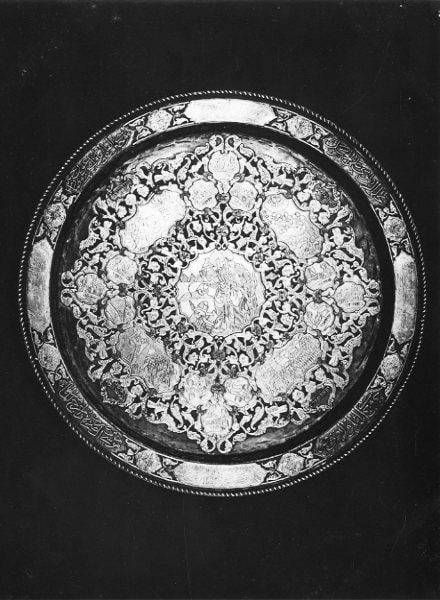
Silver Passover plate with inscription engraved in Hebrew and Arabic, Syria, 19th century
93 notes
·
View notes